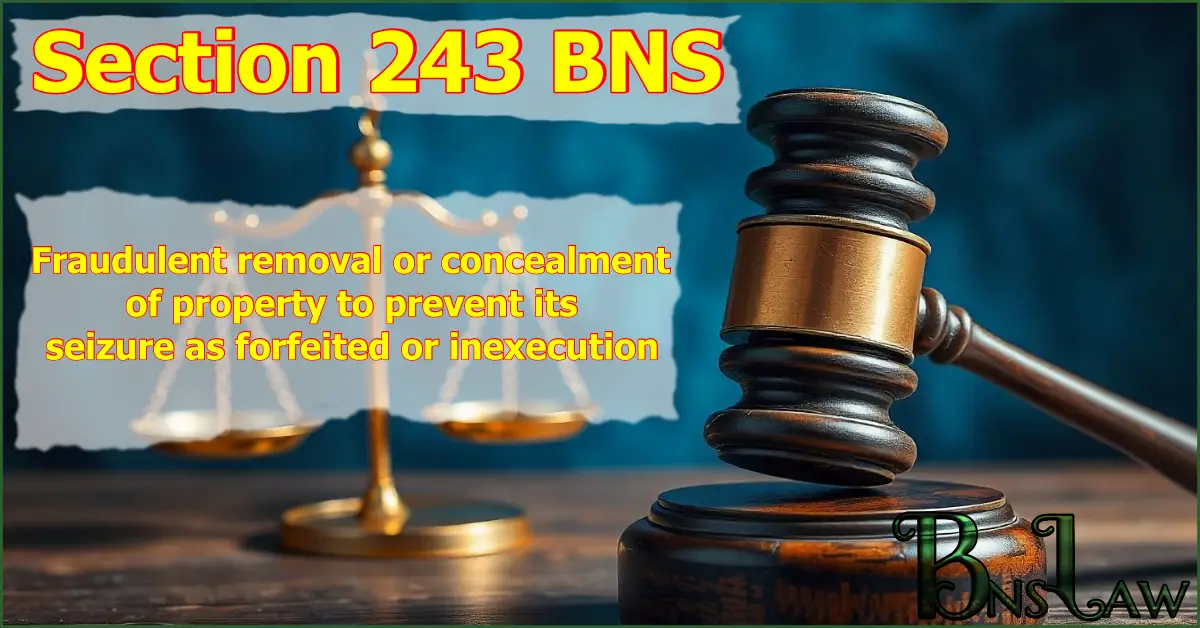Whoever fraudulently removes, conceals, transfers or delivers to any person any property or any interest therein, intending thereby to prevent that property or interest therein from being taken as a forfeiture or in satisfaction of a fine, under a sentence which has been pronounced, or which he knows to be likely to be pronounced, by a Court or other competent authority, or from being taken in execution of a decree or order which has been made, or which he knows to be likely to be made by a Court in a civil suit,
shall be punished with imprisonment of either description for a term which may extend to three years, or with fine which may extend to five thousand rupees, or with both.
READ OTHER SECTIONS OF CHAPTER XIV — OF FALSE EVIDENCE AND OFFENCES AGAINST PUBLIC JUSTICE
FAQs of BNS Section 243
-
243 BNS punishment and fine
Punishment and fine under Section 243 of the BNS: Imprisonment for 3 years, or fine, of 5,000 rupees, or both.
-
243 BNS cognizable or not
The offence under Section 243 of the BNS is non-cognizable.
-
243 BNS bailable or not
The offence under Section 243 of the BNS is bailable.
-
243 BNS trial court
Offence specified in Section 243 of the BNS is triable by any Magistrate.
Important Points
- Cognizable Offences: These are offences where a police officer can arrest a person without a warrant.
- Non-Cognizable Offences: These are offences where a police officer cannot arrest a person without a warrant.
- Bailable Offences: These are offences where the accused can get bail from the police station itself. All bailable offences are listed in the First Schedule of the Bharatiya Nagarik Suraksha Sanhita (BNSS).
- Non-Bailable Offences: Offences in which bail is not granted directly from the police station but after hearing the case in the court, the judge decides when bail will be granted. All non-bailable offences are listed in the first schedule of the Bharatiya Nagarik Suraksha Sanhita (BNSS).
- In the above FAQ, “trial court” means the court that has jurisdiction to try the offence.
- In the above FAQ, the expression “Magistrate of the first class” and “Any Magistrate” does not include Executive Magistrates.
Read other Sections of the BNS
Reference Link: New Criminal Laws (BNS), Ministry of Home Affairs







